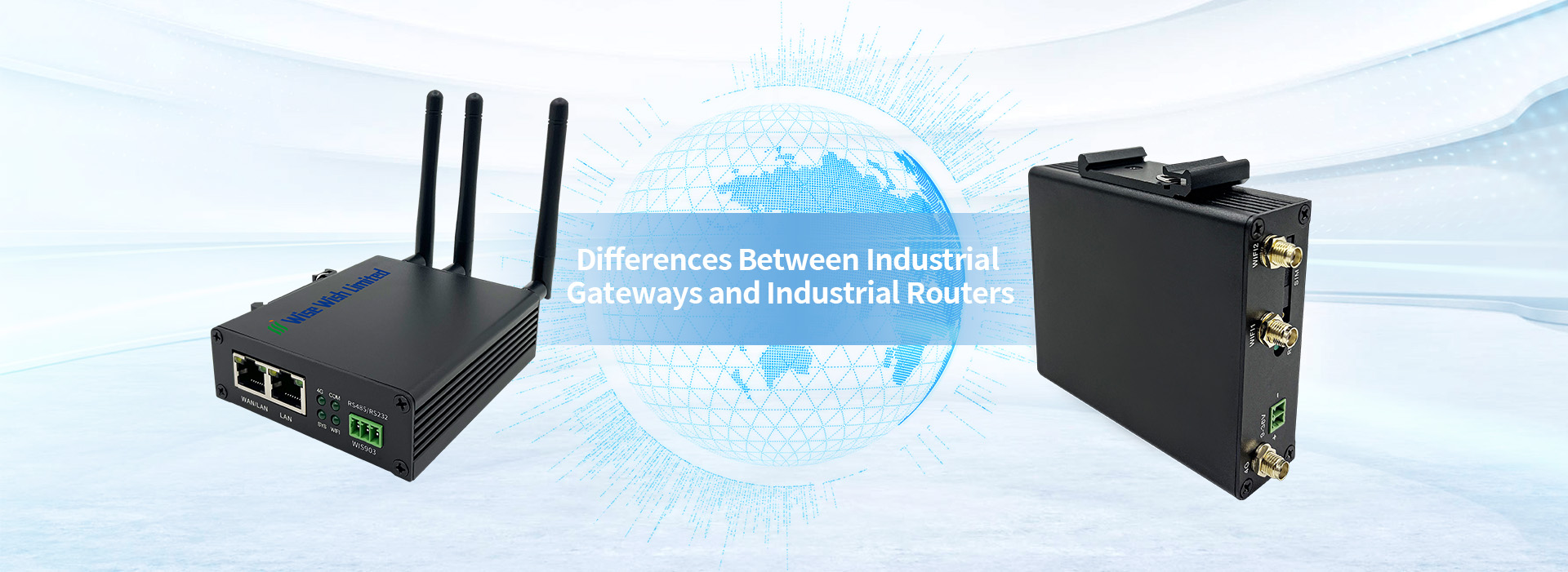
Differences Between Industrial Gateways and Industrial Routers
In modern industrial networks, ensuring seamless communication between devices and systems is crucial for achieving efficient operations. Industrial routers and industrial gateways are indispensable components in this process. While both play important roles in network infrastructure, their functions and application scenarios differ significantly. Industrial gateways can be seen as an extension of industrial routers, offering broader capabilities in protocol conversion and data processing. This extension allows gateways to play a more significant role in complex and diverse industrial environments, especially when integrating different communication standards and devices is required.

Industrial Gateways: Connecting Diverse Systems
Protocol Conversion
The core function of industrial gateways is protocol conversion. In industrial settings, different devices may use a variety of communication protocols, such as Modbus, PROFINET, and EtherCAT. Gateways enable seamless communication between these devices by converting one protocol to another. This is particularly important for integrating legacy equipment with modern IoT devices, as they often use different communication standards. Through protocol conversion, gateways not only enhance system interoperability but also extend the lifespan of traditional equipment.
Different Network Connections
Industrial gateways can connect and manage various network types, including wired networks (like Ethernet) and wireless networks (such as Wi-Fi and cellular networks). This capability allows them to integrate different network infrastructures on a unified platform, supporting remote monitoring and control. Such diverse connectivity is particularly useful in applications requiring data transmission across geographical locations or different technological standards, such as remote factory management or multinational supply chain monitoring.
Data Processing
In addition to protocol conversion, industrial gateways possess robust data processing capabilities. They can perform real-time data analysis, filtering, and aggregation during data transmission to reduce redundancy and improve transmission efficiency. For example, in IoT applications, gateways can preprocess sensor data and send only critical information to central servers, thereby reducing bandwidth requirements and speeding up response times. This local data processing capability also helps enhance the system’s real-time performance and reliability.
Network Security
In terms of security, industrial gateways integrate various security features to ensure the confidentiality and integrity of data transmitted across networks. They typically support encryption protocols, authentication mechanisms, and firewall functions to prevent unauthorized access and data breaches. Additionally, gateways can monitor and log data flows for auditing and tracking in case of security incidents. These security measures are crucial for protecting sensitive industrial data, especially in applications involving remote access and control.
Industrial Routers: Managing Network Traffic
Data Routing
Industrial routers are responsible for efficiently directing data flow within complex networks. They use dynamic routing protocols (such as OSPF and BGP) to automatically select the best path, ensuring that data packets reach their destinations quickly and accurately. This is essential for applications requiring high throughput and low latency, such as real-time monitoring systems or automated production lines. Moreover, routers support redundant path configurations to enhance network reliability and fault tolerance.
Network Connections
Industrial routers can connect multiple network segments, providing an integrated communication platform. They support various interface types like Ethernet, fiber optics, and DSL, enabling seamless collaboration between different network architectures. This flexibility allows routers to adapt to industrial networks of varying sizes and complexities, from small local area networks to global wide area networks. Additionally, routers often come equipped with advanced management features like VLAN segmentation and QoS settings to optimize network performance.
Traffic Management
Traffic management is a key function of industrial routers. Through traffic shaping, bandwidth allocation, and priority settings, routers can effectively manage network load to prevent congestion and ensure that critical task data streams are prioritized. For instance, in a mixed traffic environment, routers can prioritize control signals while queuing non-critical task data for later processing. This intelligent traffic management helps improve the efficiency and stability of the entire system.
Conclusion
In summary, industrial gateways serve as an extension of industrial router functionality, providing higher levels of flexibility and interoperability for modern industrial networks. By supporting multiple protocol conversions, diverse network connections, enhanced data processing, and security features, gateways enable seamless integration between devices and systems in complex industrial environments. This capability not only enhances the efficiency of existing equipment but also lays a solid foundation for future technological development.